Over the past few days, I have seen many posts on social media from family and friends expressing thankfulness and wishing others good fortune (I’ve also been wished a “Happy Thanksgiving by a fair number of my passengers). It’s that time of year, you see. Reading all of these wonderful, heartfelt, and often funny expressions of happiness put me in mind of something wonderful that happened to me in August, just a little less than two months ago. A friend and former colleague (for whom I have an incredible amount of respect) did a thing on Facebook called “The Grateful Challenge,” where the participant posts for seven days, and on each day tells three things for which he or she is grateful. As well, the person challenges other people to do likewise, and my friend nominated me. Well, even though I generally don’t do things like this, there was something about this particular exercise which struck me as uplifting, so it didn’t take me long to accept.
I was, and still am, glad I did.
It occurred to me that some of my Facebook friends might not have seen my original posts, as the brilliant minds in charge of the social media titan, in their infinite wisdom, alter your news feed so that you do not automatically see everything your friends post (What you see is decided by algorithms (?!), which to me is a very complicated way of saying that the machine purports to know more about what you want to see than you do, you’re welcome.) So, today being Thanksgiving in Canada, I thought I’d take the opportunity to share the full, un-edited text from my Grateful Challenge. It was an eye-opening experience. As soon as I decided to do it, I already knew what my first day’s post would be about, but after that, I sat down and wrote each post cold. You’d think it would have been difficult, but it was remarkably easy. The hard part was keeping some of the posts brief (and yes, coming in at a total of just under 2200 words is me being economical with my words). It’s not difficult to see the purpose of such an exercise; expressing gratitude for the things you have is very therapeutic, as it focuses on the positives in our lives. I came away from the experience feeling even better about myself than before, and, reading my posts again today, I understand even better that a big part of feeling good about myself is remembering how truly fortunate I am. Not just on one day or one week of the year, but every day.
Day 1 of the Grateful Challenge.
I have been nominated by Lori MacDonald to say three things that I'm grateful for for the next seven days. Thank you for thinking of me, Lori.
No one who knows me will be surprised by how I begin this exercise.
1) I am grateful that I met and fell in love with Jaime. I've typed many a word on Facebook over the years declaring my love, admiration, and respect for my wife. It would be impossible to measure just how much she has done to make my life what it is. She, more than any other person, is responsible for me having the ability to love myself, and for having the ability to now understand how true happiness begins from within.
2) I am grateful for my daughter, Mairi. Special, magical child. Funny. Smart. Quirky. Cautious and thoughtful. Kind and generous. Talented. Honest as the day is long. She is definitely her own person. She thinks she's learned so much from me, but I've learned so much more from her.
3) I am grateful for my daughter, Ashleen. Special, magical child. Funny. Smart. Quirky. Big-feeling, big-hearted. Full of spirit. Shoots first and asks questions later sometimes. While others are dipping a toe to test the water, she's flying past them in full cannonball mode. Indomitable. Indestructible. Kind.
And now, since I'm supposed to nominate three people to take up the challenge for themselves, it only makes sense to bring the ladies in on the deal. I nominate my wife, Jaime Conrad-Howie, and my daughters Mairi Conrad and Ashleen Pika D'Orsay to spend seven days thinking about and sharing what makes them feel grateful. Sorry, Jaime; I know you probably want to strangle me, but you'll be really good at this. Mairi, don't get too stressed about it; it's all in good fun. Ashleen, get up off your lazy butt and do it; it'll be good for you (and you can't say you're grateful for mashed potatoes every day ).
Day 2 of the Grateful Challenge.
1) I am grateful for having grown up in a home with two parents who loved me. Things were not always perfect, and my mum and dad were as flawed as any human beings are. They worked hard to provide me with the stability and security of having a roof over my head, so that I could have many experiences which would shape me into the person I am now. I could go on about the things I learned from them over the years, but there is one in particular that I would like to point out. There are certain vile, cruel, disgusting words that people use to hurt others who are different from them. Some children, sadly, grow up learning these words and attitudes through what they see and hear every day in their own homes. My home was not like this, and I am particularly grateful that my mum and dad set such a good example.
2) I am grateful to have a large, diverse, and interesting family. Sisters, aunts, uncles, cousins, nieces, nephews, the whole kit and caboodle. Some I see a lot of. Some I see infrequently. Some I haven't seen in years. Some I haven't even met. It's nice to know they are out there. I love feeling like I am a part of something. Through Facebook, I get to share in their successes, and hear their news. It's great.
3) I am grateful for the close friends I have, the ones who have known me for years, who are like family to me. No need to tag anyone here; they will know who they are when they read this. We have a history together. We have laughed together, and cried too. We have celebrated, and mourned. We have had grand, epic, weird adventures. We have done stupid things, and kept some secrets. We have loved each other without conditions, which is great, since sometimes we can be real a-holes. I love you all, and I have no doubt that you love me back.
Only two days in, and already I feel like the luckiest man in the world.
Day 3 of the Grateful Challenge.
1) I am grateful for having had the opportunity to be a teacher. Over the course of 15 years, I plied my trade in a variety of different capacities. For seven years, I worked for the Cape Breton Literacy Network (now the Adult Learning Association) in Glace Bay, New Waterford, and Sydney, teaching Level 1 and 2 ALP, helping adult learners gain placements at NSCC and the CBVRSB Adult High School. During this time, I also managed to teach some summer school English and do some GED tutoring at the Whitney Pier Youth Centre (thanks to my dear friend Mac MP and the wonderful Gordie Gosse). After moving to Sackville, and after a lot of substituting, I managed to eke out 5 semesters of full-time work at Millwood High School. I worked under some fantastic administrators, met, collaborated with, and learned from some marvelous teachers, and got to teach and learn from some amazing students. Through it all, I've had experiences too voluminous to mention, and forged relationships that I hope will last for many years.
2) I am grateful to have my current job, as a driver for Halifax Transit. Realizing that I needed a change, I went to an information session for Transit, and came away thinking that this was something that I could do. Well, after completing all of the necessary testing and interviews, they hired me. I've been driving for almost a year now. The time has really flown by. I love the job. It turns out that it was just the change I needed.
3) I am grateful for all of the other jobs that I have had over the years. I have worked at a coal mine and in call centres. I have worked in a factory and I have worked for the federal government. I have been paid to act, sing, and dance, to drive a car, move furniture, edit a university newspaper, rent videos... and so much more, the mind reels. Good, bad, wonderful, brutal, I appreciate the perspective each has given me. I am lucky.
Day 4 of the Grateful Challenge.
1) I am grateful for music. The musical roots in my family run deep. My grandfather (mum's father) and his sister were both well-known and respected piano players in Cape Breton; he, with Gib Whitney's Orchestra, and she, with The Acadians. My love of music stretches back as long as I can remember. I was exposed to a variety of different music from a very early age. Music has continued to be an important part of my life and family. My wife is not only a music lover, but a wonderful singer as well. We have passed this love of music on to our talented, eclectic children.
I could not imagine my life without music. It can make you feel joyful or sad. It can make you want to dance, or stop and think. No matter the effect, the experience elevates us.
2) I am grateful for movies. There's a scene in the movie "Grand Canyon" between a film director (Steve Martin) and his friend (Kevin Kline). I don't remember the exact line, but the director tells his friend that his problem is that he hasn't seen enough movies, because the answers to all of life's problems are in them. Since I was a child, when I see a movie that I really connect with, I get that feeling. It could be the story, the struggle of a particular character, a moment when it all comes together. Sometimes it's just a line that stays with me. Once I fall in love with a film, a performance, whatever, I love it forever.
3) I am grateful for reading. I was a very early reader. I devoured everything I could get my hands on. One of the greatest events of my childhood occurred when my parents, when I was 4, purchased a set of encyclopedias. Oh how I loved having so much information right there in my own home. For those of you who don't know, a set of encyclopedias in the early 70s was like the internet now. If I wanted to know about tigers, World War II, sharks, whatever, all I had to do was grab one of those 26 alphabetized volumes off the shelf. I love learning about new things. I love fiction, too. From childhood story books, to chapter books and novels, it's a wonderful experience to be absorbed in a written story. Poetry. Plays. Short stories. Essays. Articles. I still love to read.
Day 5 of the Grateful Challenge.
1) I am grateful that Canada is a country with universal health care. Though it may have some flaws in its application (mostly through what I call "the human element"), the premise is what matters. Over the course of my lifetime, I have had stitches, x-rays, blood and other tests, minor surgical procedures, and so much more, and never once have I been presented with a bill at the end or had to endure financial hardship as a result.
2) I am grateful that my wife and I both have jobs with health benefits to help us out with the "extras" which our health care system, sadly, does not cover. Medications, physiotherapy, eye care, and counselling are some of the things we have access to which help make us a healthier, happier family.
3) I am grateful for my health. I know that I am extremely fortunate that I do not have any major health concerns. For a male of almost 46 years of age, I am in very good health. My main concerns are diet and exercise, and these are things that, ultimately, I can control.
Day 6 of the Grateful Challenge.
1) I am grateful for the communicative potential of technology. Never much of a texter, I found myself texting a lot more when my daughter moved to Newfoundland for school. Through social media, I can stay in touch with friends I don't see often or haven't seen in years (decades even), as well as family who are far away.
2) I am grateful for the informative potential of technology. As I loved my encyclopedias as a child, so now do I love being able to have information about whatever I want to know just a few key strokes away. Also, ever the information junkie, I appreciate being able to find out about important events both near and far.
3) I am grateful for the opportunities I have to get away from technology. I still prefer real, live, face-to-face conversations. I still enjoy reading books, magazines, and newspapers. I'm an avid people-watcher. I like walking, and I still do this without having a phone stuck in my face or ear buds impeding the possibility for actual environmental interaction and enjoyment. When I have the time, one of my favourite things to do is to just sit and think.
Day 7 of the Grateful Challenge.
Day 7 already? The week sure has flown by.
1) I am grateful for the access to nature that living in Nova Scotia affords. I have been able to visit many of our provincial parks, as well as both of our great national parks. Besides these, Nova Scotia has numerous wilderness areas and beaches. Living here, I have also had many life-affirming, mind-blowing, and simply nice interactions with a variety of different wildlife. This aspect of our province is not something to be missed or taken for granted.
2) I am grateful to live in a country which celebrates diversity. As Canadians, we can think and express ourselves as we choose so long as we don't promote hate, we can worship as we choose, even if we choose not to, without persecution, and we are free to openly love and marry (or not) whomever our hearts guide us to. Though we are not perfect, and though some old, intolerant ideas stubbornly remain, I am grateful for the progress I have seen in my lifetime and continue to see.
3) And finally, I feel it would be somehow dishonest of me to write so much about gratitude without acknowledging one other special person, who I will not name. I am grateful that, almost six years ago, I started seeing the most wonderful psychologist. It was right around the time that my dad had received his terminal diagnosis. With that, and a lot of other stressors at the time, I made the decision to seek help, as I had never been all that great at dealing with stress. My psychologist helped me tremendously through this most difficult time. As I continued to see her, she slowly helped me understand myself. Long story short, she has been instrumental in helping me get to this point in my life, where I feel happier than I can ever remember feeling.
| | |
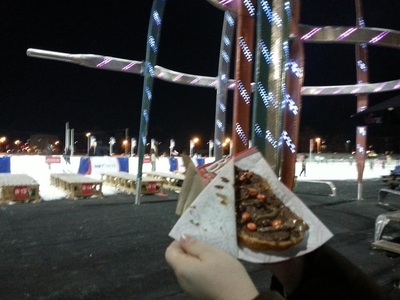
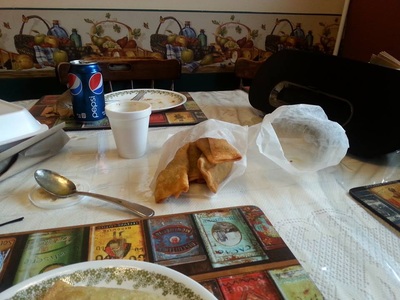
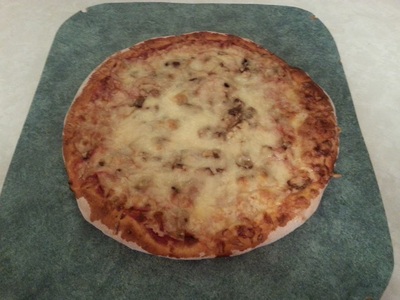

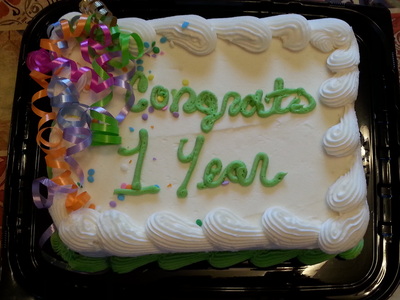
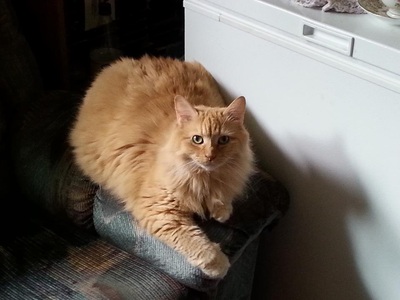
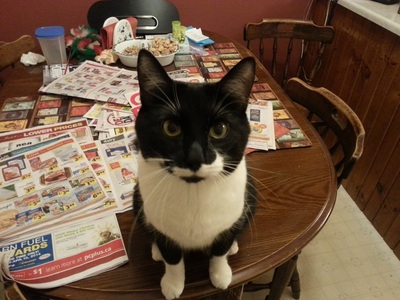
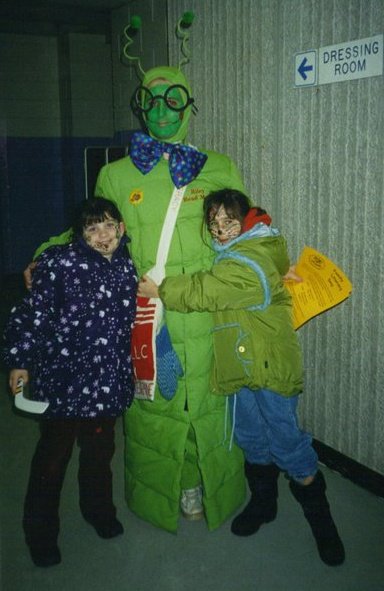

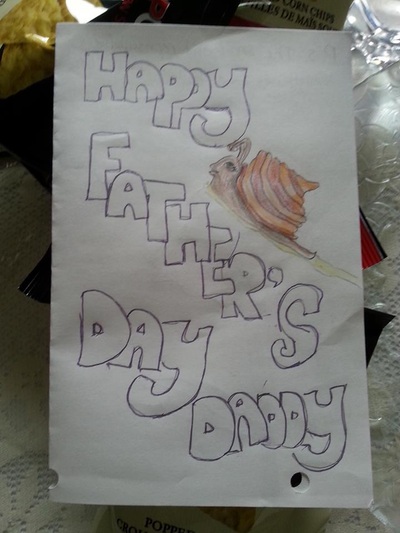
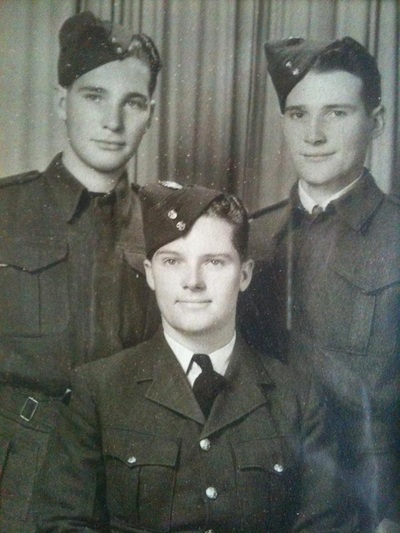
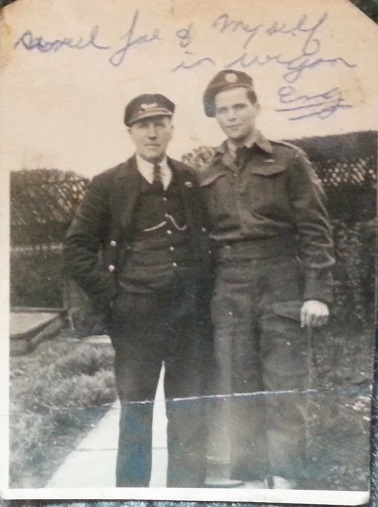
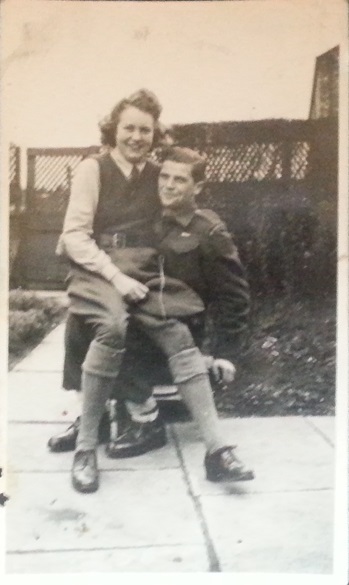
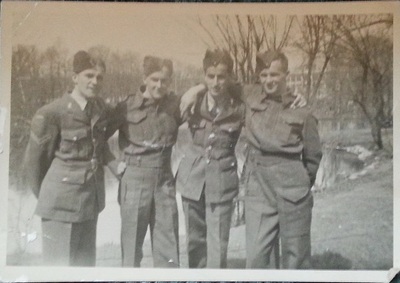

 RSS Feed
RSS Feed